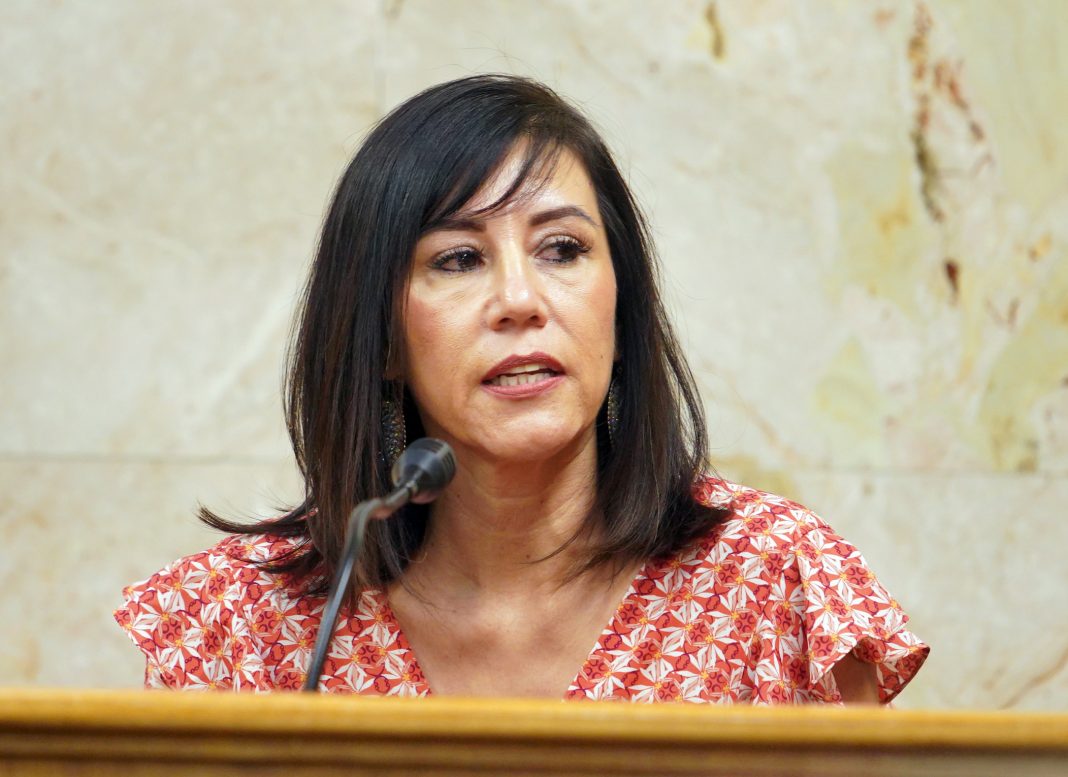EDINBURG — It was under the light of a cellphone that Araceli and Richard Ramirez changed their address on the voter registration to appease a friend.
The Ramirezes were at a birthday celebration for their daughter on a night in 2017 when former Mayor Richard Molina and his wife Dalia Molina allegedly asked them to register to vote under an address located within the city limits, according to the couple who both testified in court Wednesday afternoon.
The issue, and why both found themselves testifying under oath, is that the couple didn’t live at that address but, in fact, lived outside the city limits and therefore were not eligible to vote in the Edinburg municipal elections. But they wanted to help out a friend, they said, so they changed their address to one that was no longer theirs and to which they had no intention of moving.
The Ramirezes were among nine people — including relatives and friends — who testified on Wednesday that Molina encouraged them to change the address on their voter registration cards so they could vote in the November 2017 mayoral election in which Molina was elected mayor.
Molina is currently on trial on a count of engaging in organized voter fraud and 11 counts of illegal voting.
Araceli Ramirez said that it was at that birthday celebration that Molina asked them to change their address, suggesting they change it to the the address of Richard Ramirez’s mother because they used to live there.
Araceli said she knew it was wrong and she wouldn’t have done it if the Molinas hadn’t asked them to.
Others within the same social group also testified that Molina asked them to change their voter registration to include an address within the city of Edinburg.
Oralia Leal and her husband, Adolfo Cantu, both testified they changed their address to an apartment complex where they didn’t reside just for the purpose of voting in the election because Molina allegedly persuaded her husband to do so.
Leal said she and her husband went to Molina’s campaign headquarters where a woman helped them fill out their voter registration application.
Three former friends testify that Molina pressured them to vote illegally
At one point, Leal said she questioned the address on the application, wondering if she would have to change the address for her utility bills.
But Molina, who was also present, allegedly assured her, saying “Don’t worry, it’s a minor city election,” Leal said.
At that point, though, she said she didn’t realize it was wrong.
“I don’t vote in city elections so I really didn’t know the actual law,” Leal said.
Upon cross-examination from Molina’s defense, attorney Carlos A. Garcia asked Leal why she voted for Molina and she acknowledged that she trusted him and relied on what he told her about what was appropriate. She said that if Molina had asked her to do something illegal, she would have said no.
“And so if someone told him, and he relied on somebody else, then does he get the same benefit of the doubt as you do?” Garcia asked.
However, state prosecutor Michael Garza objected to the question as it called for Leal to speculate. The judge agreed.
The jury also heard from three people who used to work for Molina’s former business partner, Julio Carranza.
Carranza was the operating branch manager for Citywide Home Loans, a mortgage company. The employees testified that the office often held networking mixers that Molina sometimes attended.
The employees, who did not live in Edinburg, testified that they were encouraged by either Molina or Carranza to change their address on their voter registration so they could vote in the 2017 mayoral election.
They said they felt pressured to make the change and to “go with the flow” of what other coworkers were doing. However, none of them said they were threatened in any way or offered anything in return.
When questioned by defense attorney Jaime Peña, one former employee, Edward Ramos, said he didn’t know what he was doing was wrong.
“Because had you known it was wrong, had you known it was illegal, you never would have done it?” Peña asked.
“Yeah, that’s true,” Ramos said.
On redirect questioning by the prosecution, Ramos said he knew he was voting in an election he wasn’t eligible to vote in.
Testimony in the trial will continue Thursday morning.
PREVIOUS COVERAGE:
Former Edinburg mayor accused of voter fraud tells judge ‘I’m not guilty’ on first day of trial





